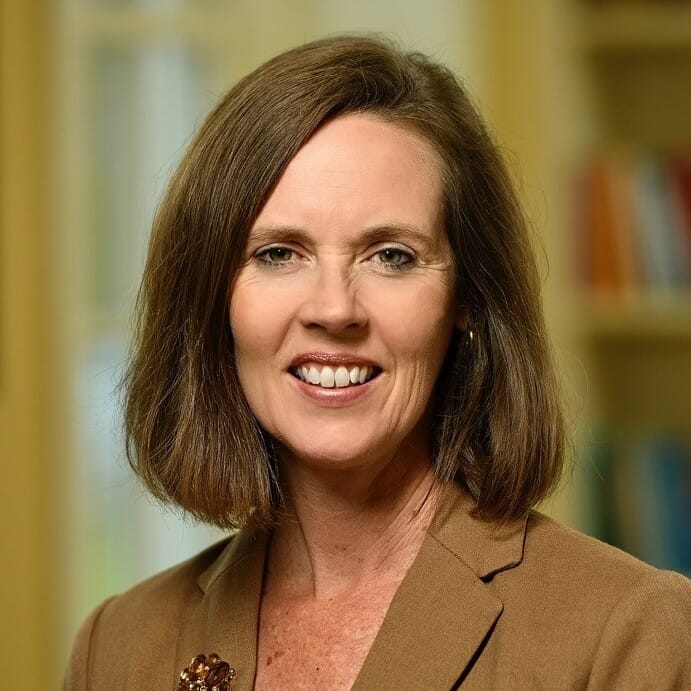
A COLUMN FROM GETTYSBURG COLLEGE
This article is the fourth in a series by Ashlyn Sowell, Gettysburg’s associate vice president and campaign director. The previous articles are:
Developing Your Campaign Reports: Getting it Right the First Time
Spring Clean Your Major Gifts Portfolio
4 Lessons Learned from Campaign Volunteers at Gettysburg College
Today, Sowell shares some critical reminders that are fresh on her mind after spending half a year with her New Zealand colleagues.
For the past six months, I’ve had the good fortune to be living in Auckland, New Zealand while my husband is on sabbatical from Gettysburg College. Depending on whom you ask, the Kiwis are about 10-20 years behind the United States in creating a culture of philanthropy and in growing their advancement programs. And there’s nothing like looking at a young country to remind you of some important building blocks for development and alumni relations — building blocks that we might otherwise neglect in the rush of our work.
I had the chance to experience these fresh reminders firsthand as I got to know colleagues across this small and wonderful country. Even for those of us with more mature programs, the following reminders from three of my New Zealand colleagues can be very helpful.
1. Cast the Net Widely
I was pleased to meet several colleagues at the University of Auckland, including John Taylor. The University of Auckland is the flagship university in New Zealand and has the most advanced development and alumni relations program. John is now in a senior consultant role, but he led the university through a record-breaking $200M campaign that concluded two years ago. He has a great background in private school administration and fundraising, and he knows the value of relationships.
One of his secrets to success is raising money from “friends” (or non-alumni) of the university. Because alumni relations programs are still growing and parent relations programs are in their infancy in NZ, his staff cast a wider net, soliciting many local business people, entrepreneurs, and philanthropists to participate in the “Leading the Way” campaign. This campaign went beyond the ivory towers to show what type of leadership the university could play in the advancement of knowledge creation, intellectual discovery, and innovation for New Zealand and the world.
Building on a sense of national pride and problem-solving, John and his team were able to meet and exceed their goals by looking widely for new prospects. It made me want to go home and scour my own pipeline for “friends” we may have overlooked who might want to play a more active role at my institution.
Donors today seem to be focused on using their gifts to solve the world’s problems, especially those problems they care about deeply. Does your website lift up global issues like sustainability, access to clean water, education for young women in developing countries, or integrity in leadership? There may be donors searching for that at your institution, and wanting to meet with a program officer who can tell them more. At Gettysburg College, we are trying hard to segment our donor population as we find out exactly what interests them, and to connect them to specific programs where their gift can have immediate impact. We’ll be sure to look at our “friends” more closely in our campaign!
2. Partner With and Educate Your Leadership
Chris Klaassen wears many hats. He is an educational management consultant as well as the president of the EducatePlus, New Zealand Chapter (http://educateplus.edu.au). At Chris’s invitation, I had the pleasure of speaking in Christchurch, Auckland, Hawkes Bay, and Wellington at their Professional Development (PD) sessions. In addition to being my NZ wine advisor (sauvignon blancs and pinor noirs are the best!), Chris helped me to understand that Educate Plus prioritizes partnering with vice chancellors, heads of school, and board members to understand philanthropy and advancement.
For many of these folks, fundraising is a new and sometime uncomfortable proposition. EducatePlus’s PD sessions included breakfasts just for these audiences, to give them some best practices in the field and to help them understand their unique roles. This provided institutional leaders with much-needed education, networking, and a chance to compare notes peer-to-peer.
In North America, we need to be sure that we are providing the same resources and training for our presidents, deans, and board members. While it is helpful for these leaders to get a staff perspective, sometimes the best advice comes from someone who has walked in their own shoes. To this end, there are some great training sessions available for new presidents and deans in fundraising.
MORE FROM ACADEMIC IMPRESSIONS ON EDUCATING YOUR LEADERSHIP
Fundraising for Deans (book)
Fundraising for Presidents (book)
At Gettysburg College, we offer an orientation and mentoring program for new board of trustee members. It helps to have an experienced board member explain the role of the development office at the college, as well as the importance of making a personal gift and cultivating other alumni to give generously. Topics covered can range from the nuts and bolts of how philanthropic gifts fit into the budget to the nuances of asking a prospect for direct financial support. I believe that people are much more comfortable with fundraising when they understand the need for it and when they have been supportive themselves. Having passion for your institution goes a long way, but making an investment goes even further!
3. Make People Feel Special
Speaking on the panel for school leaders with me was Paul Greaney, the executive director of the development foundation at Sacred Heart College, an independent school. Paul’s background as the COO of a major international company gives him a unique perspective for working in advancement and for connecting people with the school to further its mission. Paul is a parent of a former Sacred Heart student and knows what a valuable education young men are getting at this Marist-founded institution with a focus on community spirit. However, he realized that the alumni (or “old boys”) did not always feel connected, and when the time came for their sons to pick a school, they weren’t sure where to turn. Paul made sure that alumni started receiving special treatment and felt educated about and included in the admissions process.
Our constituents have so many places competing for their time and money. We must make sure that we are doing everything we can to evaluate their experience and make them feel special. If not, it’s our loss.
Stewardship plays a more important role than ever in the advancement world. We all know that our best future donor is probably a current donor.
I’ve heard it said that you should thank a donor seven times for a gift. At Gettysburg, we are focused on who is making this “thank you.” How can we include the president, a student, the gift officer, a beloved professor, and others in this important process? One of our best stewardship events is an annual luncheon where we bring endowment donors together with scholarship students and others across the campus to really see what a difference their gift makes to a real person on our campus. We also try to find ways (through video) to deliver this experience to those who cannot attend. All of this makes people feel special and keeps them connected.
Leaving New Zealand will be a bittersweet experience. While I will miss this beautiful country and my new colleagues, I’m also eager to get back home. I feel so grateful for our great American tradition of philanthropy. However, I hope I can remember the valuable reminders from the Kiwis, and I wish them all the best as their programs continue to grow and thrive.


